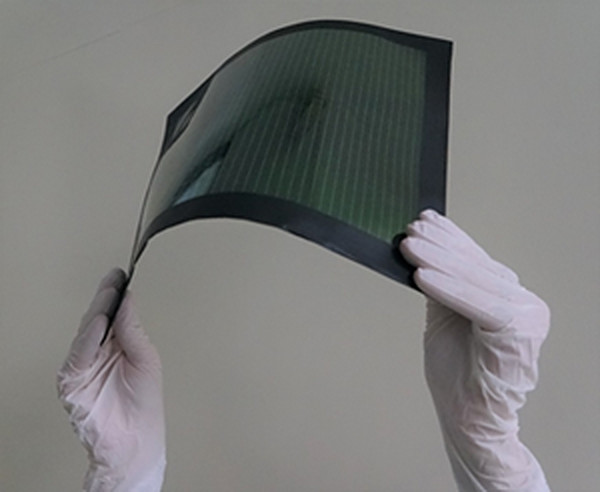Japanese electronics manufacturer Toshiba has achieved a power conversion of 16.6% for a 703cm2 polymer film-based perovskite solar module.
“We provided large film-based perovskite PV module as experimental materials for demonstrations,” a spokesperson from the company told pv magazine, referring to a project conducted at the Aobadai station in Yokohama that includes analyzing indoor performance.
The latest efficiency result is a large improvement on the 15.1% efficiency that Toshiba achieved for the module in September 2021.
The device is fabricated through a one-step coating method that uses improved ink, film drying processes, and production equipment to form a uniform perovskite layer. The process is said to halve the steps for deposition of the MAPbI3 perovskite layer. The coating speed is said to reach six meters per minute on a 5×5 cm2 module, which the company defined as a rate that meets requirements for mass production.
Popular content
The flexible and lightweight panel is indicated by Toshiba as suitable for locations where it is difficult to install conventional crystalline silicon modules, such as low-load-bearing roofs and office windows.
The company has stated in the past that it plans to commercialize its perovskite technology in 2025.
This content is protected by copyright and may not be reused. If you want to cooperate with us and would like to reuse some of our content, please contact: editors@pv-magazine.com.


2 comments
By submitting this form you agree to pv magazine using your data for the purposes of publishing your comment.
Your personal data will only be disclosed or otherwise transmitted to third parties for the purposes of spam filtering or if this is necessary for technical maintenance of the website. Any other transfer to third parties will not take place unless this is justified on the basis of applicable data protection regulations or if pv magazine is legally obliged to do so.
You may revoke this consent at any time with effect for the future, in which case your personal data will be deleted immediately. Otherwise, your data will be deleted if pv magazine has processed your request or the purpose of data storage is fulfilled.
Further information on data privacy can be found in our Data Protection Policy.